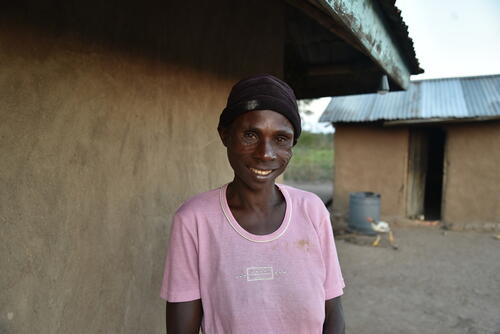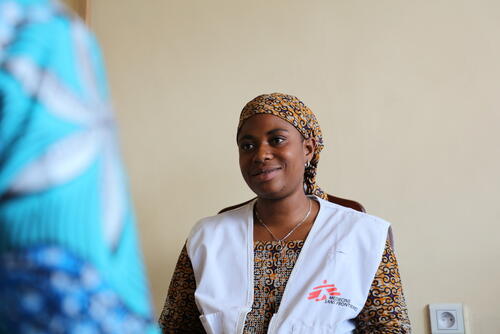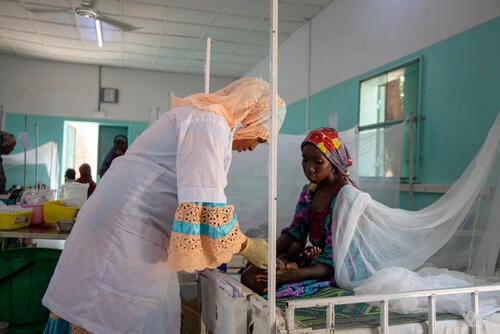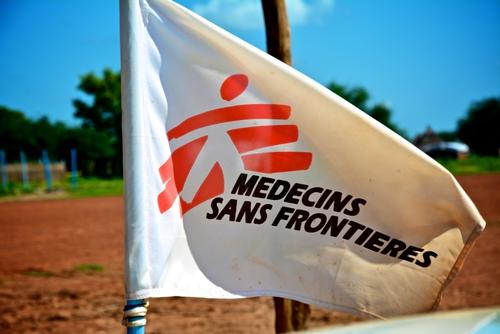The 24th International AIDS Conference is in Montreal, Canada, from 29 July - 2 August 2022.
The figures of the fight against HIV show we’re moving backwards: the response to the virus is losing coverage and pace. MSF teams witness increased difficulties to provide people living with HIV with the necessary prevention, diagnosis and treatment. Our teams report less HIV testing, less treatment initiation, more patients on treatment lost to follow up, and reduced prevention programmes. This is largely due to shortfalls in funding for key HIV interventions.
Funding gaps for medical supplies are resulting in stock outs, insufficient availability of drugs, and increased financial barriers for patients. The lack of resources forces rationing of services, and certain communities or people get no or substandard care. The shortfalls also mean that innovative approaches, so important to keep making progress, cannot be implemented.
With less people initiating antiretroviral treatment and more people on treatment lost to follow-up, more people living with HIV present at MSF-supported clinics with worrying signs, such as low CD4 count* and opportunistic infections, which put them at greater risk of dying. This is extremely concerning.
These disturbing slide backs are partially due to negative effects of the worldwide COVID-19 pandemic, and they are compounded by significant economic problems and cutbacks in international aid in many countries, notably for health. Subsequently, the international pledges for the upcoming replenishment of the Global Fund in September 2022 are crucial to make or break the HIV response over the next few years. There is also a need for re-engagement of other donors and implementers.
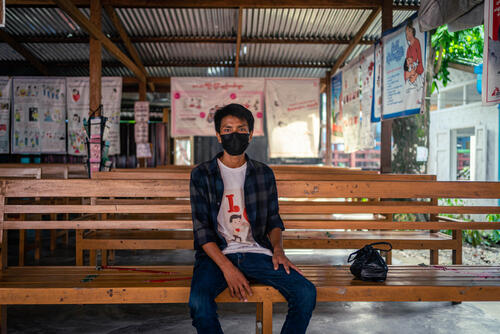
Current situation - what's needed?
Political commitment to solidarity is urgently needed
The international donor community has made political and moral commitments to curb the HIV pandemic and bring it under control. Today, we are not making progress – instead, we’re sliding back. In 2022, the replenishment of the Global Find presents an opportunity to correct that.
However, the current ask of the Global Fund is not including the additional needs and necessary catch-up efforts following the COVID-19 pandemic. Moreover, the money the Global Fund will ask for in September 2022 is meant for 2024-2026, but already today there is an urgent need for additional resources to bridge the most pressing shortfalls. With competing priorities and economic problems, affected countries face difficulties to mobilise the necessary domestic resources. This will likely result in even more gaps, if international donors do not step in.
This is the time to re-commit to reversing the dreadful current trends that puts the lives of millions of people living with HIV in the balance. Strong political commitment from donor countries is more needed than ever to stop eroding gains and get the response to HIV back on track.
AIDS tools, treatments and models of care still lack strong political and programmatic attention
Too many patients with AIDS are detected too late. Often diagnostics and medicines to treat them are not available, or come at high costs to the patients, unaffordable for most. This leads to substandard and incomplete care. The delay also means more severe complications, longer hospital stays and higher mortality.
While tuberculosis is acknowledged as the leading cause of death among people living with HIV, it is essential that diagnostic and therapeutic tools are available for effective and early detection and treatment of cryptococcal meningitis, the neglected, second-leading cause of death among people living with HIV. National programmes, UNAIDS, World Health Organization (WHO) and other programme funders and implementers need to be held accountable to setting and achieving annual AIDS-related deaths to under 250,000 people by 2025, and to specifically reduce deaths from cryptococcal meningitis by 50 per cent in 2025 and 90 per cent by 2030.
Equally important is the support to adapted models of care that enable early detection of advanced HIV disease at basic health care centres, such as clinics, or at community level. Hospitals and basic health care sites need to be able to do a rapid assessment, to immediately start treatment and avoid mortality. COVID-19 increased barriers to retention in care and timely initiation, so there is an urgent need to facilitate people living with HIV to (re-)start antiretroviral treatment.
Read more in the report: Burden sharing or burden shifting? How the HIV/TB response is being derailed
Important HIV prevention drug, CAB-LA, must be made available to those who need it most
CAB-LA stands for cabotegravir – long acting. This new antiretroviral drug is an important preventive tool for use in pre-exposure prophylaxis (PrEP), to prevent new HIV infections in people at high risk. The announcement of WHO at AIDS 2022 that CAB-LA will be included in its HIV PrEP guidelines is important, but now the conversation on affordability and availability for rollout should start.
MSF wants to pilot a project using CAB-LA for people at highest risk of infection, key populations and young girls in particular, in Mozambique and Eswatini. Implementing innovative tools like CAB-LA can be a real game-changer, and they are urgently needed to reach the global targets to reduce new HIV infections.
Read more in the issue brief: Cabotegravir: What are we waiting for?
Communities should play a role in HIV programmes, because we know that works best
Community-led interventions are crucial in the HIV response. They bring prevention, diagnosis and treatment closer to patients. Community monitoring of the availability and access to essential medical supplies can leverage system improvements.
Much of the success in the results obtained in the HIV response is possible due to the work done by civil society organisations. They are crucial to overcome the barriers to care when health systems are under-resourced, substandard, or ill-adapted to the needs of people living with HIV.
Read more in the report: Towards Peer-Led HIV and SRH Services for Sex Workers and Men Having Sex with Men
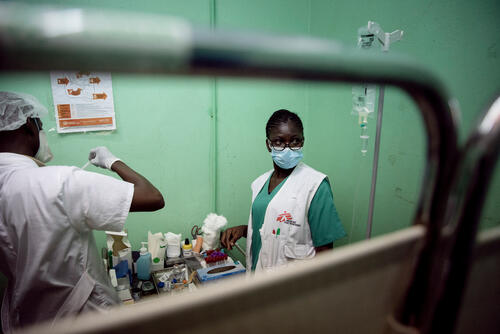
Events
Storytelling & Drag in Solidarity with People Living with Advanced HIV
29 July 17h00-19h00, in Centre Phi
Storytelling reception that highlights experiences supporting people living with advanced HIV around the world. Co-hosted by Maison Plein Coeur and Gap Vies during AIDS 2022, and on the eve of Montreal Pride Week 2022, this in person event will include stories from MSF and other organisations on advancing access to HIV/AIDS care, a photography exhibit and a live performance by Montreal drag queen BARBADA.
Unmet needs and widening gaps in the HIV & TB response
30 July 17h45-19h00 in Hotel Monville
After an introduction of service gaps for HIV/TB observed by MSF teams and CSOs, the session aims at sharing perspectives on how to bridge those gaps in light of the upcoming Global Fund replenishment.
Community-led monitoring and the role of observatories to improve access to medicines and health services
31 July 13h00-15h00, GFAN Networking Zone (Embassy Suite, GFAN Meeting Space)
MSF, RAME and UCOP+ welcome you to this session where we discuss the importance of community-led monitoring (CLM) as a strategy to collect information from people living with HIV using HIV services, providing feedback in a systematic and continuous way to the health system on its performance. This information contributes to sustained improvements and changes in the access, quality and the impact of health services. The session focus on the impact that CLM can have to improve access to HIV and TB medicines and services with examples and with a particular emphasis on the Observatories.



